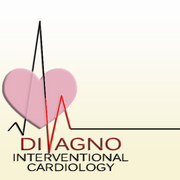The Do's and Don'ts of Eating a Heart-Healthy Diet

Keeping your heart healthy requires eating a healthy diet. Many of the foods and drinks people consume can lead to high blood pressure and high cholesterol, which could contribute to heart disease. Though food choices can be linked to two-thirds of global deaths related to heart disease, you can reduce your risk by following these do's and don'ts of a heart-healthy diet.
Do:

Read food labels while shopping.
Reading dietary labels when grocery shopping will help you maintain a heart-healthy diet. Pay attention to serving sizes. The nutritional values on the label are for a single serving. If you consume more than one serving, the other values will increase, including your caloric, sodium, and carbohydrate intake.
Choose healthier fats and oils.
Not all fats and oils are bad, though many people assume they need a fat-free diet to keep their hearts strong. The key to consuming fats is choosing the right kinds. Saturated fats found in foods like butter, pastries, and processed meats like sausages and bacon can contribute to high cholesterol if you overeat them. According to the American Heart Association, only 5% to 6% of your daily calories should come from saturated fat. Consider replacing saturated fat with healthier unsaturated fats found in vegetable oil, avocados, nuts, and seafood.
Don't:
Overdo your sodium or salt intake.
Salt will enhance the flavor of your food, but too much of it is not good for your heart. High levels of sodium in your diet can contribute to high blood pressure. The condition narrows blood vessels, forcing the heart to pump blood harder to provide blood and oxygen to the body's organs. While some salt is okay to include in foods, it's better to eat things that are lower in sodium. When shopping for groceries, look for labels that say "no salt added" or "low sodium."
Consume large portions.
The amount of food you eat is as important as the quality and type of food you consume. Eating from a large plate or bowl or taking seconds may cause you to feel full and content, but it will give you more calories than you need in a single meal. Keep your portions in mind by using a smaller plate or bowl during meals. Fruits and vegetables are low-calorie foods full of nutrients, so you can eat more of them without unintentionally overdoing your caloric intake.
The right diet will help improve your heart health, but it isn't always enough. If you need high blood pressure or high cholesterol treatment, turn to DiVagno Interventional Cardiology, MD, PA. Based in Rochelle Park, NJ, this practice includes a team of board-certified cardiovascular physicians who specialize in interventional cardiology and cardiovascular diseases. They service patients from Hackensack University Medical Center, Englewood Hospital and Medical Center, and Holy Name Medical Center. Learn more about this patient-centered practice online or call (201) 845-3535 to schedule an appointment.
About the Business


